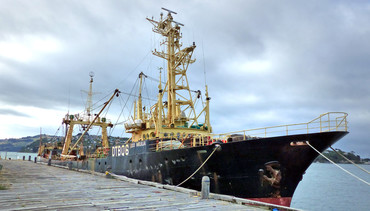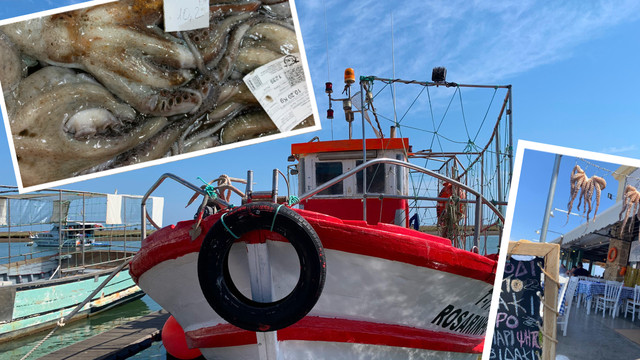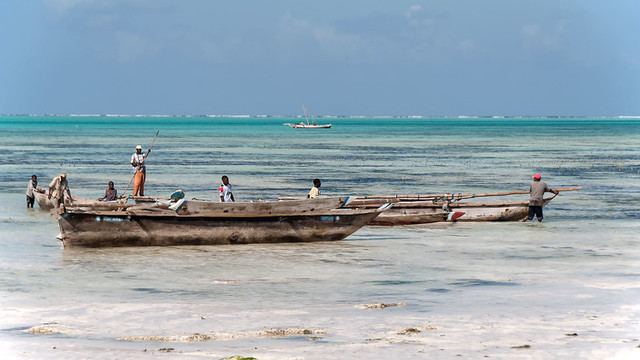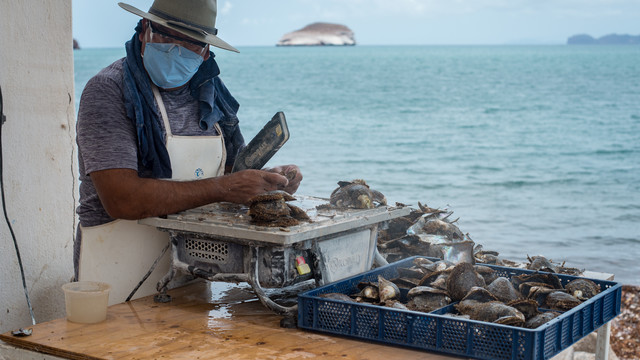Fish Night 4: Governing our high seas. Why now?
IIED's latest Fish Night event looked at the high seas and biodiversity. Can governing the high seas have an impact for biodiversity? How do the challenges faced by high seas governance impact us in our daily lives?

Fish Night 4 will hear from a record-breaking ocean skipper on her ocean experiences (Image: Nick Turner/IIED)
Skipper and ocean plastics expert Emily Penn was the guest speaker at the fourth instalment of IIED's event that highlights interesting and timely issues around fisheries and the oceans.
'Fish Night 4: Governing our high seas. Why now?' took place at IIED's headquarters in London on Thursday, 1 December with partners Blue Ventures and Ibex Earth, and registrations are now open.
An architect turned ocean advocate and skipper, Penn circumnavigated the globe on a record-breaking bio-fuelled boat. She spent six years at sea, exploring and discovering oceanic gyres – huge areas of plastic accumulation. She co-founded Pangaea Explorations, an organisation dedicated to marine education, conservation and exploration via a 72-foot sailing vessel.
Penn shared her insights from high seas to low lying islands, connecting her experiences to the challenges facing today's society. She delved into the issue of ocean plastic pollution; from rigorous scientific analysis to developing solutions involving large-scale community involvement.
Her discussion was followed by question-and-answer session moderated by IIED director Andrew Norton.
Previous events
IIED's Fish Night events bring together people from academia, government, conservation and the media to discuss issues around sustainable fisheries and oceans.
Previous Fish Nights have focused on sustainable fisheries and what governments and the private sector could do to promote them, and the launch of the online platform FishNet.
Fish Night events aim to:
- Demystify complex theories and scientific findings: by making the findings accessible to policymakers and consumers, they can promote informed decision-making and fisheries literacy
- Create space to share hard-earned lessons, and
- Inspire change to create fisheries that work today and into the future.




